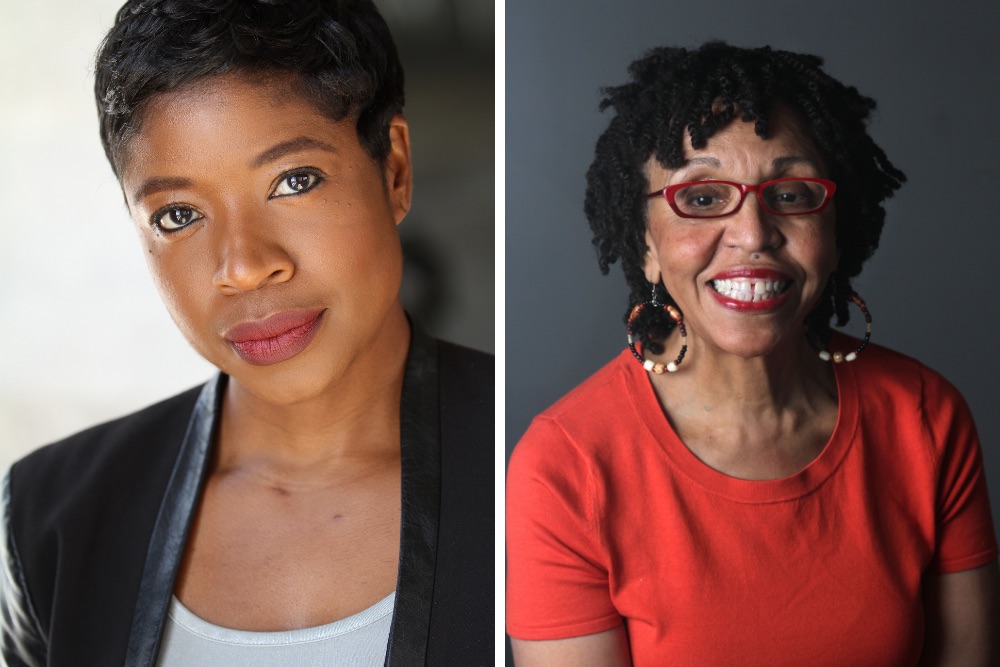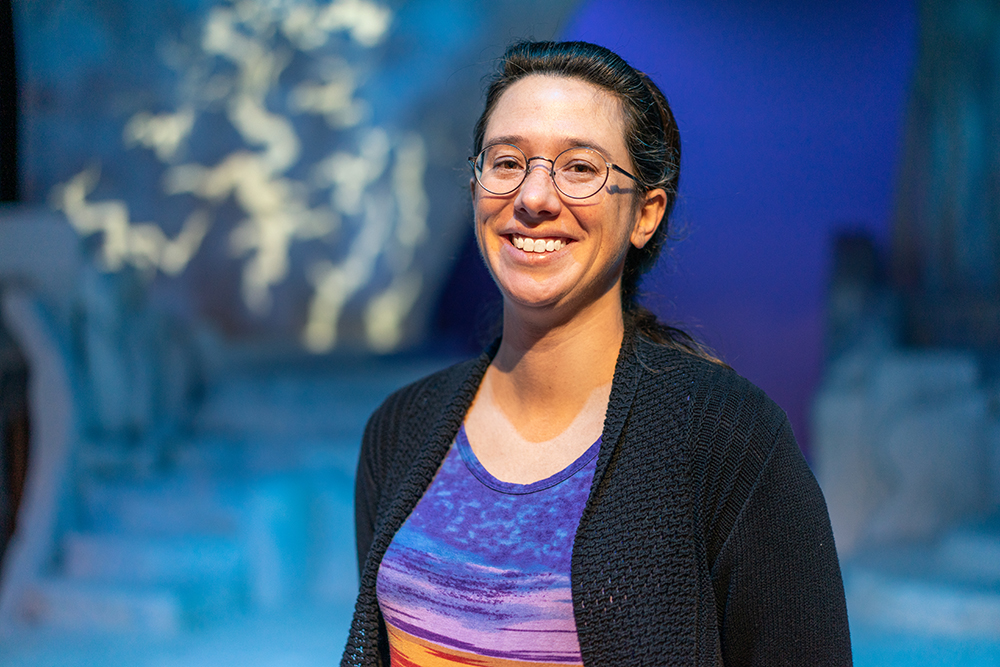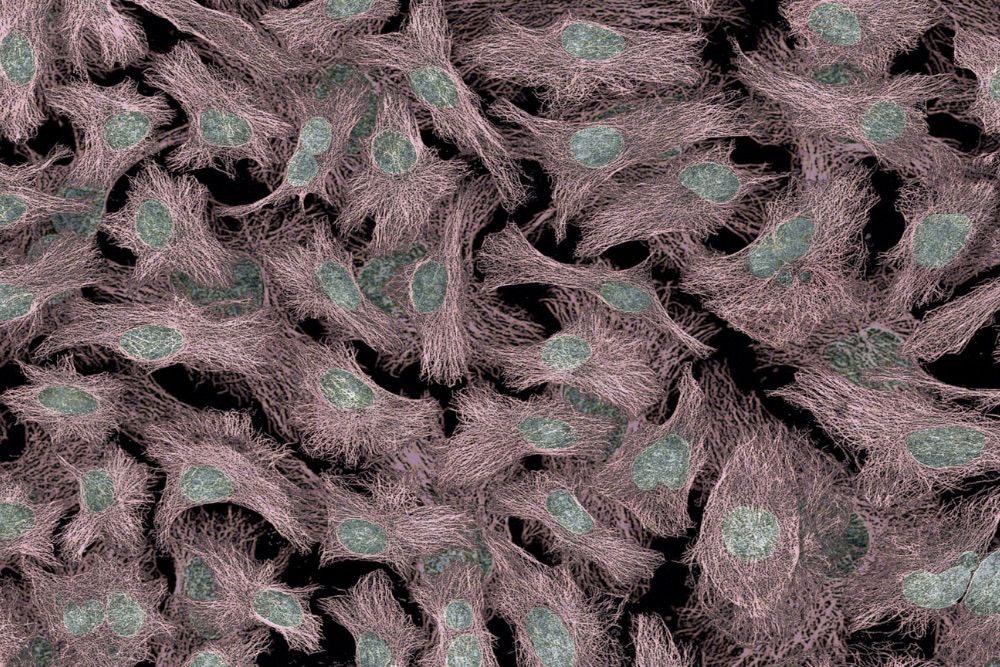Loading component...
Alison Dobbins, associate professor of integrated performance media design, recently completed the media design for the monologue, “Call Me by My Name,” presented at the 2020 Atlanta Black Theatre Festival on Oct. 3. Written by Michigan playwright and librettist Sandra Seaton (M.A. Creative Writing ‘89), “Call Me by My Name” centers on Henrietta Lacks, an African American tobacco farmer and mother of five whose cancer cells were the source of the HeLa cell line, arguably the most important cell line in medical research history.
This collaboration started when Dobbins approached Seaton to write a monologue for use in her performing arts in health care class, which focuses on the social and cultural side of medicine, including expressive arts therapies. In the class, students create a dramatic script to explore narrative therapy. When Seaton suggested a monologue about Henrietta Lacks, Dobbins, a former neuroscience research assistant, immediately connected with the idea. HeLa cells have been used in the development of vaccines, most notably for polio and human papilloma virus, and currently are being used by research scientists to understand the COVID-19 virus.
“Right out of college, one of my first jobs was working as a lab manager in a pain research and anesthesia lab at Brigham and Women’s Hospital. I worked on drug uptake, and the cells we were culturing were from the HeLa immortal line,” Dobbins said. “At the time, they were just cells to me. I was aware of the impact they’ve made in scientific research, but to consider the woman they came from is really powerful.”
Lacks has been on the mind of Seaton since she was a writer-in-residence at Michigan State University’s College of Law in 2010, the same year “The Immortal Life of Henrietta Lacks” by Rebecca Skoot was published. “It was a big topic of academic discussion, this ethical dilemma of taking a woman’s cells without her knowledge or consent and using them in research,” Seaton said. “Henrietta was a disadvantaged Black woman, but her cells have saved countless lives. To me, Henrietta Lacks represents the idea of giving Black women their day in court, treating them with dignity and respect. I wanted to parallel her life with the life of her cells. We’re asking people to not just see her as something in a lab. There was a life and, out of this life, very powerful things happened.”
Seaton, who previously had work performed at the Atlanta Black Theatre Festival, reached out to the organization with this new work. To perform the piece, Seaton tapped actress Tracey Bonner, whose credits include the Netflix series “Sweet Magnolias” and “Ozark” as well as films such as “Jumanji: Welcome to the Jungle.” The two had worked together before on a Milwaukee production of Seaton’s “The Bridge Party.” They collaborated remotely to create Bonner’s recorded performance of the monologue and then turned to Dobbins to enrich the piece with media design.“HeLa cells have a very distinct look,” Dobbins said. “We wanted to connect these immortal cells to the woman they came from, so viewers come in and out of the monologue almost as though they are looking through a microscope.”
The Atlanta Black Theatre Festival hosts “the nation’s largest collaborative of Black theater companies, artists and writers from around the globe, under one roof to self-produce creative works in our own voices.”
For Seaton, working during a pandemic has been a challenge, but she is enthusiastic about this year’s festival being presented online. “I think it’s great that more people can see this,” she said. “More people have the opportunity to see work that they would otherwise have to travel to, but I don’t think anything takes the place of live theater.”
“Call Me by My Name” was aired in the Fringe: Mixed Assortment category on Oct. 3, 2020. For more information, visit the Atlanta Black Theatre Festival.
For more information about the work of the playwright, including her work as librettist for “From the Diary of Sally Hemings,” visit SandraSeaton.com.


